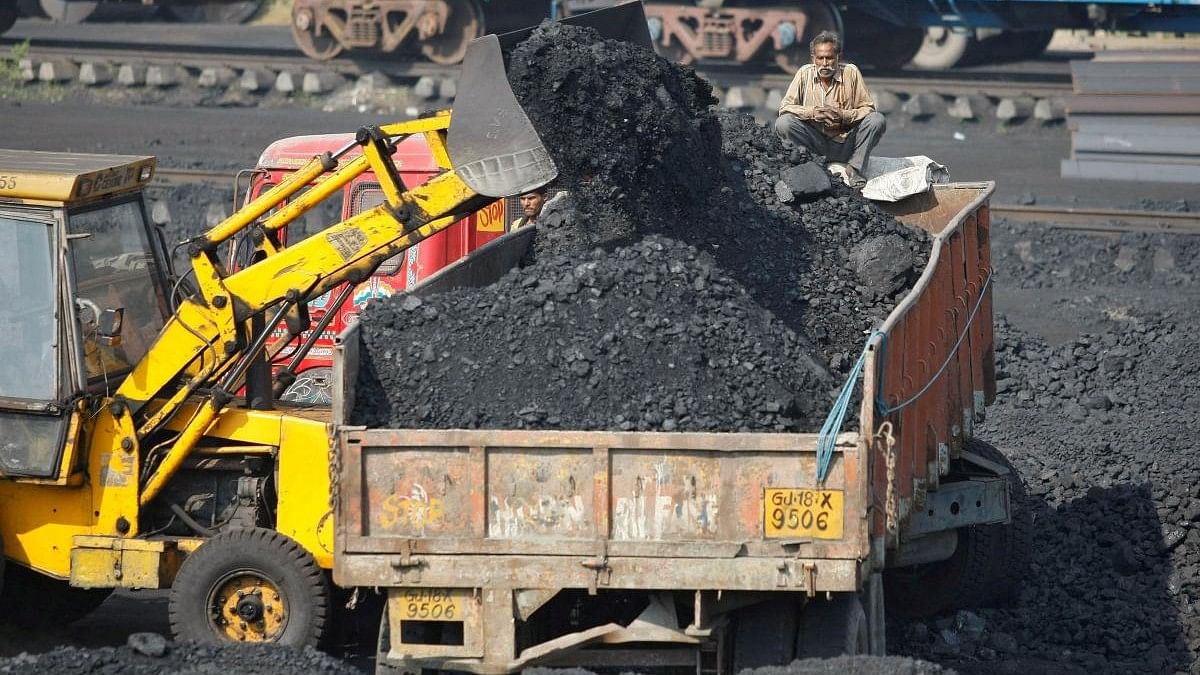
A worker sits on a truck being loaded with coal at a railway coal yard on the outskirts of Ahmedabad.
Credit: Reuters File Photo
India extended a mandate to power plants to import coal until March as the driest August in more than a century pushed electricity demand to a record, putting a strain on supplies of the nation’s main generation fuel.
Plants designed to run on domestic coal have been asked to import 4 per cent of their supplies of the fuel through March to avoid outages, extending an earlier direction to buy from overseas until the end of this month, federal power secretary Pankaj Agarwal said in an interview.
The decision comes amid surging electricity demand, partly a result of deficient rainfall that’s forcing farmers to run irrigation pumps to water their fields, Agarwal said. Hot weather in most parts of the country is also resulting in the use of cooling appliances, adding to power consumption. Peak electricity demand touched an all-time high on Friday, and has frequently breached records over the past month.
India typically reports maximum electricity demand during the summer months of April to June, when use of cooling appliances from air-conditioners to industrial chillers boost consumption.
The country reached peak demand of almost 240 gigawatts on Friday, surpassing the previous record set just a day before, according to data from the Grid Controller of India Ltd. Friday’s was 20% more than the maximum during September last year.
As a result of the surge in coal demand, stockpiles of the fuel have shrunk rapidly. Power stations are left with just 11 days of inventories, compared with 14 days at the start of June.
The ministry’s plan to boost stockpiles with seaborne cargoes can potentially reverse a declining trend in imports by power stations amid an increase in rising domestic availability. Spells of cool weather during the summer months also helped soften demand for the fuel that helps produce about 70 per cent of India’s electricity.
Coal imports by power stations during the four months through July dropped 24 per cent from a year earlier, according to data from the power ministry.